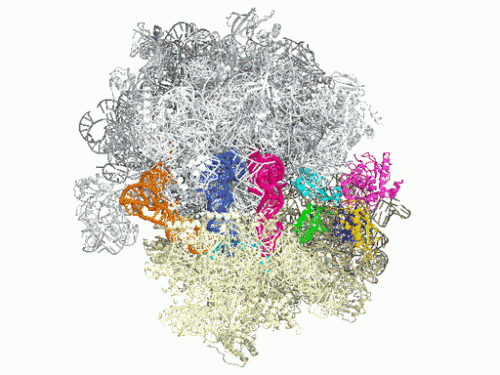Ribosomal motor crucial part of cellular protein factory

The ribosome is the protein-making "factory" within cells responsible for knitting together amino acids into polypeptide chains that form proteins.
This process requires numerous factors. One of the most crucial is elongation factor G (EF-G), shown in color in the accompanying illustration of the ribosome. EF-G is responsible for movement within the ribosome of messenger RNA (mRNA) and transfer RNA (tRNA), the molecules that carry out instructions contained in DNA. But how does this happen?
In this simplified illustration, Yale research scientist Jinzhong Lin and colleagues in the lab of Nobel laureate Thomas Steitz in the Department of Molecular Biophysics and Biochemistry show that portions of EF-G (in green, yellow and red) function something like a motor and force tRNA to move forward after the addition of each amino acid, a necessary step to add to the developing polypeptide chain.
The work is published in the journal Cell.
Journal information: Cell
Provided by Yale University




















